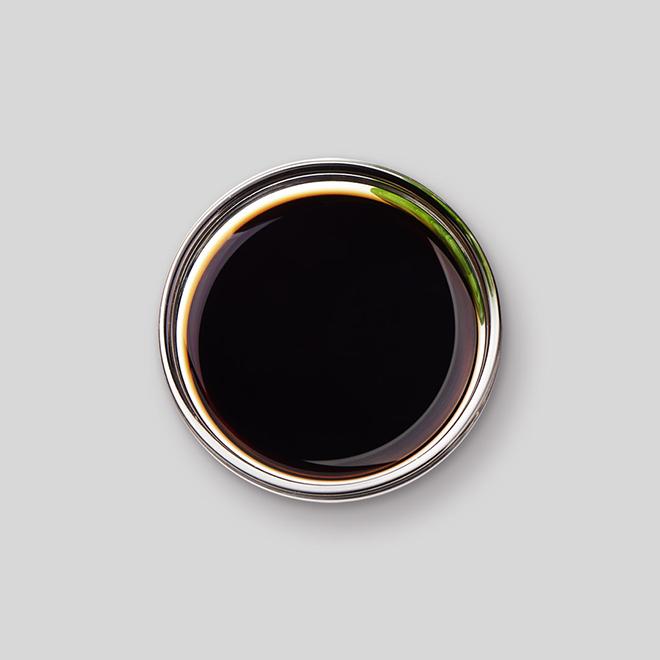Black Vinegar




Black vinegar is a flavorful condiment with a rich history and diverse uses across various cuisines. It gets its dark color and complex flavor from a centuries-old fermentation process. Typically made from rice, glutinous rice, or black rice, the grains are cooked and fermented with specific mold and bacteria cultures. This slow process, which can take months or even years, concentrates the vinegar's acidity and develops its unique umami depth.
Black vinegar possesses a distinct blend of sourness, sweetness, and a subtle earthiness. It's less sharp and has a more rounded, mellow acidity than other vinegars. Its subtle smokiness and fruity notes add complexity to its taste profile.
Black vinegar is a versatile ingredient used in diverse cuisines, particularly Chinese, Taiwanese, Japanese, and Vietnamese. It adds depth and complexity to dishes like dipping sauces, marinades, stir-fries, soups and broths and pickles and preserves.
When buying black vinegar, opt for established brands specializing in Asian ingredients for better quality and authenticity. Check the ingredients list to ensure it's made from rice or black rice and that other additives are minimal. Aged black vinegar will be more expensive but offers deeper flavor.
Store black vinegar in a cool, dark pantry away from direct sunlight or heat sources. Light can degrade the vinegar's quality and flavor. Ensure the bottle cap is always securely closed to prevent oxidation and preserve the vinegar's aroma and taste.
Black vinegar can last for years, even decades, in the pantry but keeping it refrigerated will certainly extend its shelf life by slowing down any potential chemical changes and preserving the sharpness of the flavor.
Aside from cooking with it, black vinegar can be used for cleaning. Diluted black vinegar cuts through grime and leaves surfaces streak-free, replacing harsh chemical cleaners. When mixed with baking soda, diluted vinegar can be a natural carpet and upholstery cleaner that neutralizes odors and stains.
A diluted vinegar compress can be your summer savior, easing the itch and inflammation of sunburns while a couple of tablespoons of black vinegar can soothe tired feet and neutralize odors with a warm foot soak infused with vinegar.
Black vinegar's story stretches back centuries, with some theories placing its birth around 3,000 years ago in China. Over time, different regions in China, like Shanxi and Zhenjiang, developed their own black vinegar styles, each boasting distinct flavors and production processes.
Legend whispers that black vinegar was once reserved for Chinese emperors, prized for its purported health benefits and potent flavor. Aged black vinegar, sometimes taking years or even decades to mature, can fetch high prices due to its intense flavor and complexity. Think aged balsamic vinegar in the world of black vinegar!
Use black vinegar in moderation, or its strong acidity can overpower your dish. Start with a splash and adjust to your taste.
The vinegar's subtle sweetness pairs well with savory ingredients like meats, tofu, and vegetables. Experiment with honey, brown sugar, or fruit juices to enhance the balance.
For sensitive palates, consider diluting the vinegar with water or broth before using it.
Black vinegar might offer some potential health benefits when consumed in moderation as part of a balanced diet.
Some studies suggest black vinegar may have a mild effect on lowering blood pressure in individuals with hypertension while others claim that its acidity might aid digestion by promoting the breakdown of food.
Black vinegar is highly acidic, and excessive consumption can irritate the stomach lining or exacerbate existing digestive issues. Consume it in moderation and seek medical advice if experiencing discomfort.
Corrections or improvements? Email us at
content@sidechef.com